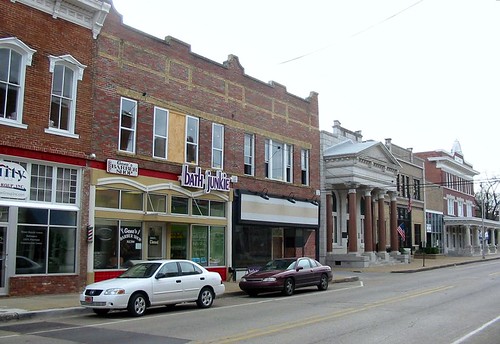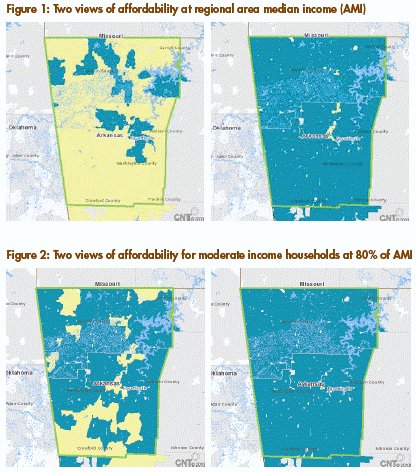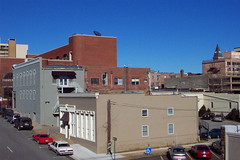Smart Growth Investment Key To Small Cities' Economic Vitality
This recent report from the Center for Neighborhood Technology looks very interesting. Among other things, it seems to confirm exactly what Chuck Marohn (Community Growth Institute, Strong Towns) has been telling us about the economic imperatives facing smaller cities and towns in Heartland America: to become resilient, prioritize investment in smart growth and efficient transportation. Extracted and paraphrased from the report and its accompanying press release:
CNT examined the state of housing, transportation, and job access in Northwest Arkansas, which includes the four core cities of Bentonville, Fayetteville, Springdale, and Rogers. The analysis is supplemented by findings from 23 interviews of business leaders, elected officials, municipal staff, and local advocates. It reveals the following:
- It is becoming more expensive for middle class residents to live near their jobs. Apartment rents and home prices within a short distance of employment centers are affordable by a national standard but are rising quickly for the middle class.
- In 2000 households spent more on transportation than they did on housing. For every dollar of earned income, a typical household spent 26 cents on housing and 29 cents on transportation in 2000. Both costs have risen as gas prices have increased and housing has appreciated.
- Northwest Arkansas lags peer regions in combined housing and transportation affordability. Because of high transportation costs, combined housing and transportation costs are higher than in peer regions such as Huntsville, Alabama, or Lexington, Kentucky. High transportation costs offset the regional advantage in housing affordability.
US Census data show that the median property value for a home in Northwest Arkansas rose 59 percent between 2000 and 2007, while median household income grew less than 4 percent during that time.
In the maps above, note the difference in the affordability of Northwest Arkansas locations when transportation costs are included with housing costs. On the left side, areas in yellow indicate that typical housing costs amount to no more than 30 percent of household income; on the right, areas in yellow indicate that housing and transportation costs together amount to no more than 45 percent of household income.
To maximize regional economic development and ensure long-term prosperity for all households, the CNT report recommends three actions:
- Rethink regional mobility. In Northwest Arkansas, four employers—Walmart, Tyson Foods, J.B. Hunt Transport Services, and the University of Arkansas—account for roughly one in four jobs in the region. (With 30,000 jobs, Walmart employs nearly twice as many workers as the other three companies put together.) Ozark Regional Transit,
which the report says is underfunded and perceived as underperforming, should partner with these major employers to give employees the option to commute without getting behind the wheel.
- Align downtown investments into a regional vision. The region should provide incentives for major investments in the downtowns of Bentonville, Fayetteville, Rogers, and Springdale that will expand opportunities to live in compact, walkable communities.
- Increase demand for walkability. While many households understand housing costs, they are unaware of the total cost of transportation. Outreach to residents, developers, and lenders about the combined costs of housing and transportation will increase demand over the long term for housing that minimizes combined housing and transportation costs.
The CNT report was supported by The Home Depot Foundation's Sustainable Cities Institute, which is working with cities across the country to assist in the planning and implementation of local sustainability strategies. SCI provides vetted and detailed information for small and medium-sized cities on a range of topics: land use, transportation, buildings, materials management, water, green infrastructure, economic development and community engagement.
Download the report, Driving Up the Cost of Living: How Housing and Transportation Costs Pressure Economic Development in Northwest Arkansas, here.
Move your cursor over the images for credit information.



 which the report says is underfunded and perceived as underperforming, should partner with these major employers to give employees the option to commute without getting behind the wheel.
which the report says is underfunded and perceived as underperforming, should partner with these major employers to give employees the option to commute without getting behind the wheel.